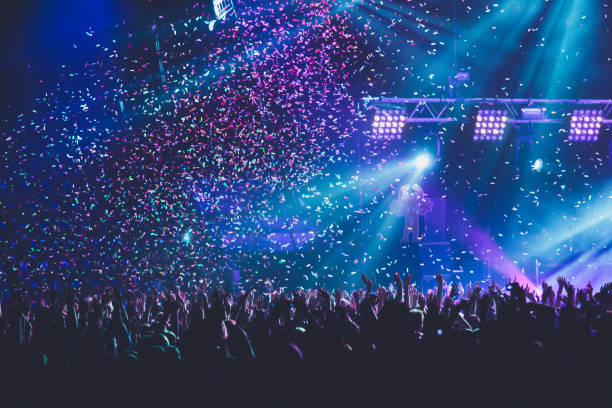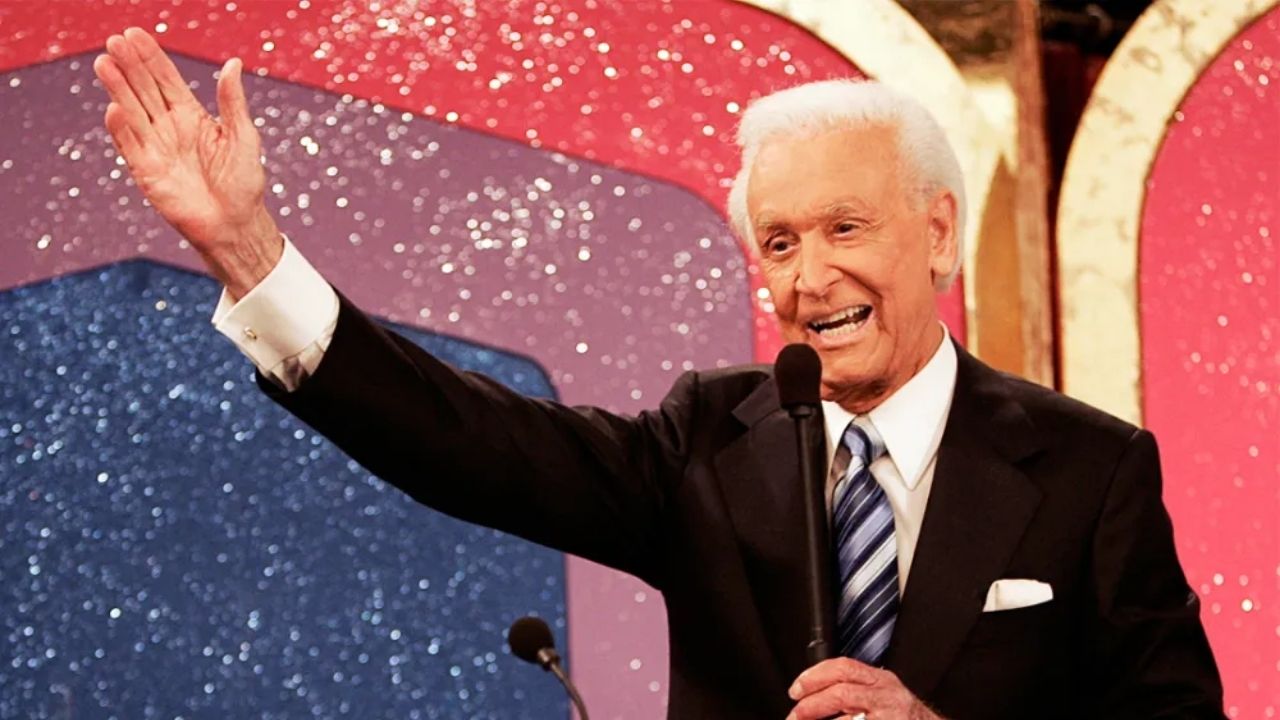Have you ever wondered just how long your favorite concerts last? Well, you’re not alone! Concerts are thrilling events where music lovers come together to enjoy live performances by their favorite artists.
However, the duration of concerts can vary widely, leaving many curious about what to expect.
In this article, we’ll break down the factors that influence the length of concerts and give you a better understanding of what you can anticipate when attending one.
Keep reading!
Table of contents
How Long is a Concert?
Concert durations can vary widely depending on several factors, including the artist or band, the type of music, and the event itself. However, here’s a general idea:
- Short Concerts: Some concerts, especially for emerging artists or bands with a limited catalog of songs, may last around 1 to 1.5 hours.
- Average Concerts: The typical concert for established artists or bands usually spans about 2 to 3 hours, including an encore if the audience requests one.
- Longer Concerts: Certain genres, like classical music or music festivals, can have longer concerts, often exceeding 3 hours and featuring multiple performers or acts.
Remember that these are just rough estimates, and there can be exceptions. The duration of a concert can also be influenced by the artist’s preferences and the specific event’s schedule. So, when attending a concert, it’s a good idea to check for any information provided by the organizers regarding start and end times.
Check out this related content: Which Group is a Primary Supporter of Hunter Education?
Why Do Concerts Last So Long?
Concerts can last a significant amount of time for several reasons, and it’s not just about squeezing in as much music as possible. Here’s a full explanation of why concerts often have extended durations:
- Artistic Expression: Musicians view concerts as a platform for artistic expression. They want to create an immersive experience that takes the audience on a musical journey. To achieve this, they need time to build up emotional arcs, dynamics, and storytelling through their music. Longer concerts allow for a more profound connection between the artist and the audience.
- Catalog of Songs: Established artists often have a large catalog of songs accumulated over their careers. They aim to showcase a variety of tracks, including old favorites and new releases, to please their diverse fan base. This necessitates a longer performance time to accommodate a wider selection of songs.
- Energy and Momentum: Concerts are not just about playing songs; they’re about creating an atmosphere filled with energy and momentum. Extended performances can sustain and build upon this energy, making the event more memorable and engaging for the audience.
- Audience Expectations: Fans attending concerts often have high expectations for the event. They look forward to an immersive experience that transcends what they can get from simply listening to recorded music. This expectation for a more comprehensive and immersive experience encourages longer performances.
- Ticket Pricing: Concert tickets can be expensive, and fans want value for their money. Longer concerts can make attendees feel like they’re getting more bang for their buck, which can lead to greater satisfaction and loyalty.
Concerts last so long because they are about more than just the music; they are about creating a unique, emotional, and memorable experience for the audience. The combination of artistic expression, a broad catalog of songs, and the desire to engage and energize the audience all contribute to the extended durations we often see in concerts.
Check out this related content: How Tall is Trippie Redd? Everything About the Rapper
What’s the Average Length of a Music Concert?
The average length of a music concert typically falls in the range of 2 to 3 hours. This duration includes the main set performed by the artist or band, as well as any encores that may follow if the audience requests them.
However, it’s important to note that concert lengths can vary widely depending on several factors, including the artist’s preferences, the type of music being performed, and the specific event or tour. Some concerts may be shorter, lasting around 1.5 hours, especially for emerging artists or those with a limited catalog of songs. On the other hand, certain genres like classical music or music festivals can have longer concerts, often exceeding 3 hours and featuring multiple performers or acts.
To get the most accurate information about the duration of a specific concert you plan to attend, it’s a good idea to check with the event organizers or the artist’s official website, as they usually provide details about the start and end times of the performance.
You should read: How Tall is Jack Skellington? All the Facts and Details
What Time Does a Concert End?
The time a concert ends can vary widely depending on several factors, including the artist’s performance style, the number of songs played, any encores, and the event’s schedule. Here are some general guidelines:
Average Concert End Time
For a typical concert by an established artist or band, you can expect it to end around 10:00 PM to 11:00 PM, although this can vary. This allows attendees to enjoy the music without it running too late into the night.
Encore Considerations
Keep in mind that many concerts feature encores, where the artist returns to the stage for additional songs after the main set. Encore performances can extend the concert by 15 minutes to half an hour or more, depending on the audience’s enthusiasm and the artist’s willingness to perform more songs.
Outdoor Festivals
Music festivals, especially those held outdoors, may have different schedules. They can run longer, sometimes extending late into the night or early morning, as they feature multiple artists or bands performing throughout the day and night.
Venue Rules
The venue where the concert takes place may have restrictions on how late events can run. This can also affect the concert’s end time.
Also check out this content: 26 Legitimate Ways to Get a Costco Student Membership for Free
How Early Should I Arrive for a Concert?
Arriving at a concert venue at the right time is crucial to ensure you have a smooth and enjoyable experience. Here are some guidelines on how early you should arrive for a concert:
- Check the Ticket and Venue Information: Review your ticket and any information provided by the concert venue or event organizers. They often specify the recommended arrival time or door opening time. This can vary depending on the event.
- Arrive Early for Popular Shows: If you’re attending a highly anticipated or sold-out concert, it’s advisable to arrive at least 30 minutes to an hour before the doors open. This will give you a better chance of getting a good spot close to the stage or your preferred seating area.
- Merchandise and Food: If you want to purchase concert merchandise or grab a meal or drinks before the show, arriving early gives you the opportunity to do so without missing any of the performance.
- Avoid Missing the Opening Act: If there’s an opening act or supporting artist you’re interested in seeing, arrive in time to catch their set. Opening acts often start before the headlining artist, so check the schedule to plan accordingly.
- Consider Local Traffic and Parking: Take into account the local traffic conditions and parking availability. Arriving early can help you avoid last-minute rush and parking hassles.
- Socializing and Atmosphere: Arriving early also gives you a chance to soak in the atmosphere, meet fellow concertgoers, and get into the spirit of the event.
- Know the Venue Layout: Familiarize yourself with the venue’s layout, including the location of restrooms, concession stands, and emergency exits. This can be helpful during the concert.
Arriving early for a concert is a good practice to ensure you have a hassle-free and enjoyable experience. It allows you to get the most out of the event, whether you want to secure a great spot, enjoy the opening acts, or simply have time to relax and soak in the atmosphere before the music starts.
You should read: What Age Do You Graduate High School?
How Many Songs are in a Concert?
The number of songs performed in a concert can vary widely depending on several factors, including the artist or band, the type of music, the concert’s duration, and whether there are any opening acts or encores. Here are some general guidelines:
- Headlining Artists: For a typical concert by a headlining artist or band, you can expect them to perform around 15 to 25 songs during their main set. This can vary based on the artist’s catalog, the length of their songs, and their performance style.
- Opening Acts: If there are opening acts or supporting artists, they will perform their own sets before the headlining act takes the stage. Each opening act may play 5 to 10 songs, depending on their agreement with the headliner and the event’s schedule.
- Encores: Many concerts feature encores, where the artist returns to the stage after the main set to perform additional songs. Encores can vary in length but often consist of 1 to 4 songs, depending on the audience’s enthusiasm and the artist’s preferences.
- Special Performances: Some artists may perform longer concerts for special occasions or as part of a tour with a particular theme. These performances can include more songs and may exceed the typical range.
- Genre Differences: The type of music being performed can also influence the number of songs. For example, a classical music concert may feature fewer compositions due to their longer duration, while a pop or rock concert may include more individual songs.
It’s essential to note that these are general guidelines, and there can be significant variations from one concert to another. The specific setlist and concert duration are determined by the artist and the event’s production team. If you’re curious about the setlist for a particular concert, you can often find it posted on the artist’s website or fan forums after the performance.
Check out this related content: Which Group is a Primary Supporter of Hunter Education?
Conclusion
Concerts offer us a chance to pause and savor the magic of music. Whether it’s a brief but intense show or an epic night that stretches into the early morning, the duration of concerts is a testament to the power of music to transport us to different worlds. So, next time you’re gearing up for a concert, keep in mind that the length can vary, but the memories will last a lifetime.
You should read: How Tall is Trippie Redd? Everything About the Rapper
Frequently Asked Question
Concert durations can vary widely, but on average, they last anywhere from 1.5 to 3 hours. However, some artists may perform longer or shorter sets based on their style and catalog of songs.
The perception of a concert’s length can be influenced by factors such as the energy of the performance, audience engagement, and how much you’re enjoying the music. A captivating show may feel shorter than it actually is.
Yes, there are various types of concerts. While a typical rock or pop concert might last around 2 hours, classical music concerts can be longer, sometimes exceeding 3 hours, due to multiple pieces and intermissions.
Yes, outdoor music festivals often feature multiple artists or bands performing throughout the day and night, sometimes lasting for several days. These events can have longer overall durations compared to indoor concerts.
Encores are a common part of concerts and can extend the show’s duration. Artists return to the stage for additional songs, typically after the audience calls for them. Encore lengths can vary, and some concerts may even have more than one encore.
References
- primesound.org– how long is a concert
- thecoldwire.com– how long is a concert- total duration
- schoolflash.com.ng– how long is a concert
Recommendations
- 26 Legitimate Ways to Get a Costco Student Membership for Free
- What Age Do You Graduate High School?
- Which Group is a Primary Supporter of Hunter Education?
- How Tall is Trippie Redd? Everything About the Rapper
- How Tall is Jack Skellington? All the Facts and Details
- How Big is 5 Inches? 6 Items with Accurate Measurement






